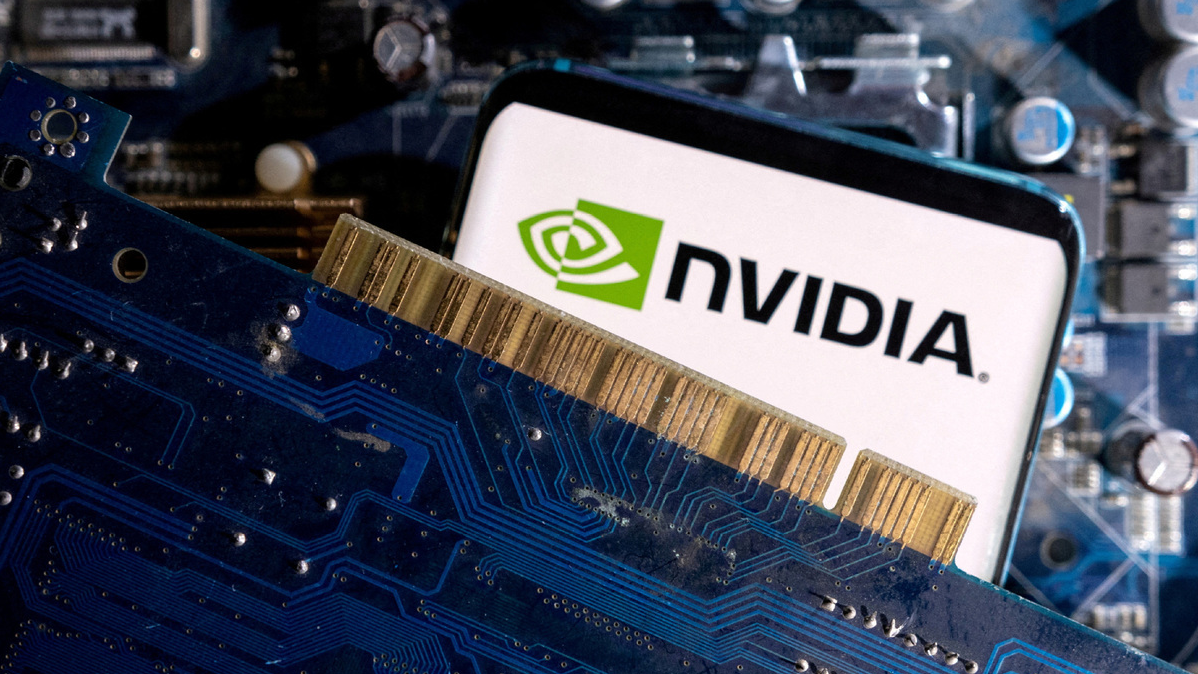
No one should question China's resolve to continue to promote high-quality opening-up through the rule of law. It is mainly thanks to the consistent legislative efforts China has made over the years to safeguard the legitimate rights and interests of foreign enterprises that the country has turned itself into one of the world's top destinations for foreign direct investment.
Those who want to use the antitrust probe the Chinese authorities have launched into US chipmaker Nvidia as a pretext to point an accusing finger at China for allegedly politicizing the business environment for foreign companies are not only turning a blind eye to the facts of the case, but also taking a double standard when it comes to antitrust scrutiny.
READ MORE: China to investigate Nvidia in anti-monopoly case
The investigation that China's top market regulator initiated on Monday into Nvidia for suspected monopolistic behaviors has caught a lot of media attention given the high-profile position the company holds as the world's leading chip producer and a key player driving the artificial intelligence revolution.
While much of the Western media have portrayed the probe as a tactical move in the Sino-US trade war ahead of the new US administration taking office or tried to link it with what they hype up as intensified geopolitical rivalry focused on a battle for AI dominance between the two countries, the actual reason is more prosaic. According to the State Administration for Market Regulation, Nvidia is suspected of violating China's Anti-Monopoly Law, as well as the commitments it made in 2020 after it acquired Israeli chip manufacturer Mellanox Technologies in 2019.
The merger further strengthened Nvidia's market dominance in the semiconductor field, which might have the effect of excluding or restricting competition in the global and Chinese markets for GPU accelerator, dedicated network interconnection equipment and high-speed Ethernet adapter. Nvidia therefore submitted to China some measures to resolve the competition problems making clear commitments, including that it should continue to supply Nvidia GPU accelerators, Mellanox high-speed network interconnection equipment and related software and accessories to the Chinese market after the deal, based on "fair, reasonable and nondiscriminatory principles". After that, China approved the transaction.
Yet, Nvidia has stopped supplying a number of GPU accelerator products to China in recent years on the grounds of the US government's export controls. This action has infringed upon the legitimate rights and interests of relevant Chinese enterprises. Therefore, it is not surprising that Nvidia is under investigation for allegedly violating antitrust laws. Article 46 of the Anti-Monopoly Law stipulates that antitrust enforcement agencies are authorized to investigate and take action against suspected monopolistic behaviors. Effectively implementing the conditions attached to the merger approval is both a proactive commitment from Nvidia and a legal obligation.
In fact, Nvidia is also facing an antitrust investigation in the United States, as the Justice Department is looking into claims that Nvidia is potentially cornering the market and pressuring its customers to unfairly retain business. That includes allegations of Nvidia threatening to punish those who buy products from both itself and its competitors at the same time. The European Union's antitrust regulators are also investigating Nvidia for possible unfair sales practices.
That Nvidia has so far responded in a low-key way — saying only "we are happy to answer any questions regulators may have about our business" — points to the confidence it has in China's legal environment. Actually, the company has taken China as one of its key global markets, with about 16 percent of its revenue coming from the country, second only to its US-generated revenue, according to data firm FactSet. Nvidia's Chief Executive Officer Jensen Huang has called China "a very important market for the technology industry", and warned there would be "enormous damage" to the US companies if they were unable to trade with China.
ALSO READ: Weakness of US' 'iron chip curtain' exposed
China has made it one of its top priorities to attract and use foreign investment. That it attracted 1.13 trillion yuan ($158.7 billion) in foreign investment in 2023, the third-highest in history, as compared with 941.52 billion yuan in 2019, is an indication that the country still enjoys strong competitiveness in the global investment market.
Contrary to any attempts to use the Nvidia investigation as a means to discredit China's efforts to create a level playing field for foreign businesses, the probe shows that China's business environment operates under the law. As it has affirmed on many occasions, the country will continue to develop a market-oriented, legalized and internationalized first-class business environment in which foreign companies can enter the Chinese market and share the country's development dividends.


